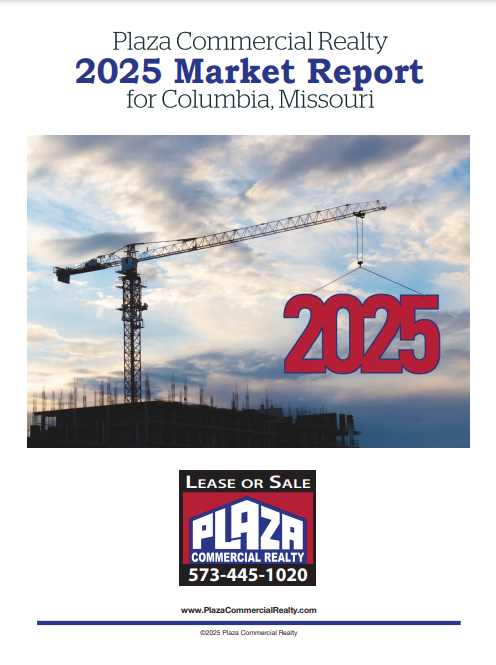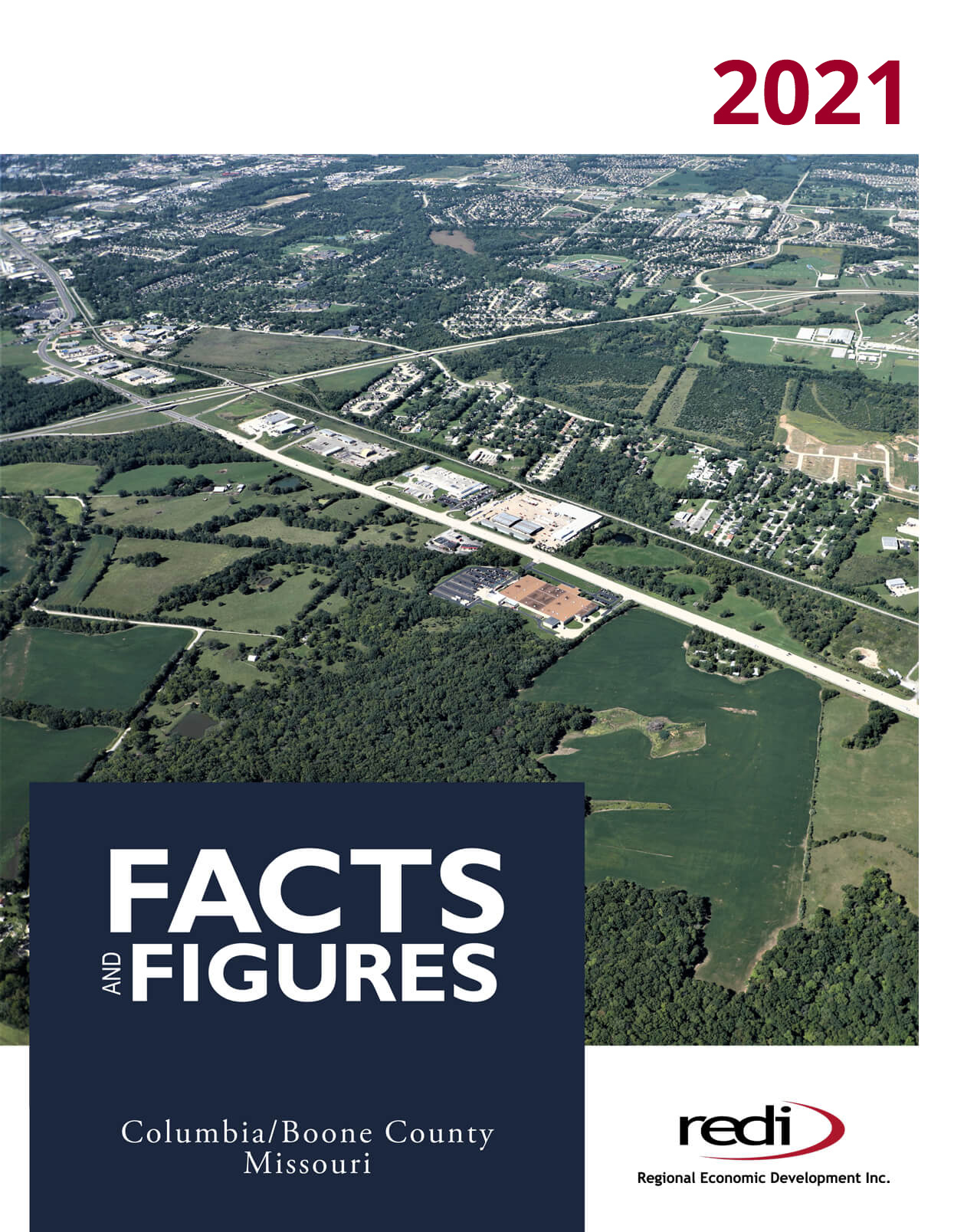Glossary of Commercial Real Estate Terms used in Central Missouri
-
Above Building Standard
Services and finishes provided by a landlord that exceed those provided under the base rent. The tenant reimburses above standard services to the landlord. -
Additional Rent
(1) Results from lease provisions that allow increases of fixed expenses, such as taxes and insurance, to be passed on to the lessee on a prorated or other agreed-upon basis. (2) A lease term that obligates a tenant to pay certain expenses in addition to the tenants periodic rent. Additional rent often includes late payment fees, costs of collection, and other miscellaneous expenses and may include operating expenses in excess of an expense stop. -
Area Amenities
Those amenities within the neighborhood or the geographic area surrounding a building and comparable buildings. -
As-Is or As-Built Condition
The existing condition of a tenant space, including all improvements. -
Attributable Costs
Costs that can be directly associated with a particular project, program, or cost center. Those costs are often called pass-through. -
Base Year
(1) A term used to calculate a base of operating expenses over which a tenant is expected to pay his or her proportionate share; usually, the base year is the calendar year in which the lease is signed. (2) A term used to calculate a base of operating expenses over which a tenant is expected to pay its proportionate share; usually, the "base year" is the calendar year in which the lease is signed. -
Broker's Opinion of Value (BOV)
The broker's written opinion of the value of real property. It justifies the value on the basis of the condition of the property and compares it with similar ones on the market. Sometimes called Broker's Price Opinion (BPO) -
Building Operations and Maintenance
Includes management of building systems, such as HVAC (heating, ventilation, and air conditioning), electrical, plumbing, security, and, in some cases, data and telecommunications cabling; maintenance of building structures and interiors, furniture, and equipment; and maintenance of grounds, landscaping, and site improvements. -
Build-to-Suit
(1) An approach to real estate development that enables a corporation to assume ownership by having a developer hold ownership until the project is complete and ready for occupancy. It is a form of delayed ownership. (2) The term also refers to an offer by an owner/landlord to construct a building in accordance with the tenants' requirements. -
Certificate of Insurance
Written verification of types, terms, and amounts of insurance carried by the named insured, which are sent to those who require proof of such coverage. -
Certificate of Occupancy
A certificate issued by a local government authorizing occupancy of a space that has been found to meet building code requirements and is considered safe for human occupancy. -
Chargeback
A cost for facilities department services, materials, or products levied on an end user of space. -
Contiguous Space
Space that is directly adjacent to another space or spaces, or space that is directly above or below a specific space. -
Core Factor
The number of square feet in a multi-tenant building devoted to the lobby and hallways and for which each tenant is assessed a certain percentage. -
Double-Net Lease
A lease where rent payments cover triple net plus building insurance premiums. The tenant pays for everything except taxes. -
Effective Rental Rates
Rental rates that include landlord concessions to a tenant to induce the signing of a lease. These concessions include free rent, paid moving expenses, and similar costs paid by the landlord. -
Estoppel
A legal principle that prevents one party from claiming to have a certain right when that party has previously acted in a manner implying lack of any interest in that right (2) A legal principle that bars a person from denying the truth of a matter that has been either conclusively determined in a prior law suit, or previously claimed, asserted, or otherwise represented by such person as being true. -
Exclusions
This area of an insurance policy describes the limitations of coverage under the policy and states specifically what the policy does not cover. -
Exculpatory Clause
(1) A clause in a contract or agreement that holds a party harmless in the event of a default. (2) Lease term that limits the liability of landlords and tenants. -
Expense Pass-Throughs
Lease clauses that require a tenant to reimburse the landlord for expenses such as insurance and taxes beyond a fixed amount; common in single-net and double-net leases. -
Expense Stop
A measure of operating expenses paid by the landlord. -
Fixed Expenses
Expenses over which a business has little control; determined mostly by outside agents, whose actions a company cannot influence, and include ad valorem (value-based) taxes (such as property taxes), property insurance premiums, and utility demand charges. -
Footprint
The actual size and shape of a workstation as a portion of floor space; also refers to the size and shape of a building as it sits on a piece of land. -
Force Majeure Clause
A contract term that excuses the performance of one of the parties to the contract when certain listed circumstances occur. -
Full Service Lease
A lease in which the landlord provides some tenant services (i.e., janitorial, snow removal) and in which some operating expenses are passed through to the tenant. -
Gross Lease
A lease that vests all responsibility for operating costs with the lessor, who assumes the full risk of any increases in these costs. The tenant's payments cover all expenses except those specifically excluded or named as above-standard services. -
Hold-Harmless Agreement
An agreement in which on party consents to protecting the other from loss and to paying for the other party's losses. -
Lease Buyout
A process usually initiated by a tenant that wants to vacate leased space before the lease term ends. -
Leasehold Interest Insurance
Coverage for the tenant's or the landlord's insurable interest in protection from a financial exposure to loss that is related to the terms of their lease. -
Location Rent
That portion of rent that is attributable to the economic advantage provided by one location over another because of a particular location's ability to provide lower costs and greater convenience. -
Modified Gross Lease
Landlord pays base year operating expenses for real estate taxes, building insurance, and some defined maintenance. Tenant to pay increases over the base lease year amounts. -
Net Lease
Type of lease whereby the tenant pays for part or all of the operating expenses which may include utilities, janitorial, property insurance,property management, sewer, water, and garbage. -
Net Net Net (NNN)
Lease type in which the tenant generally pays for all operating expenses. May even include responsibility for roof and structural repair or replacement. -
Percentage Rent
Rent that is usually based upon a percentage of the gross sales or revenue of the tenant. The percentage rent may be paid monthly, quarterly, or annually. -
Punch List
A list of deficiencies in construction compiled by the project manager or architect near the end of a job. the list should record all incomplete, missing, or substandard items and the action to be taken by the contractor to correct each problem. -
Rent Roll
(1) A condensed statement of the actual lease agreement that lists the fundamentals of each lease, such as square footage, rent, expiration date, rental adjustment dates, and expansion/contraction/cancellation rights. (2) A·list of all leases of property that also specifies the amount of rent and certain other information about each lease. -
Single-Net Lease
Lessor pays all operating expenses, except for passing through to tenant one of three Triple Net charges. -
Tenant Build-Out
Construction and/or alteration of tenant space as defined in a lease. -
Tenant/Occupant Improvements
Leasing, design, and construction, either new or alterations, plus furnishings, required to make a space habitable and serviceable for its occupants. -
Triple-Net Lease
A lease in which the tenant pays for property taxes, insurance, repairs (sometimes even major ones), site maintenance, building upgrades (possibly even to meet local codes) routine maintenance, and all operating expenses; usually done only for unique single-tenant buildings and long-term occupancies. See also Double-Net Lease and Single-Net Lease.
Data provided in part by ...



